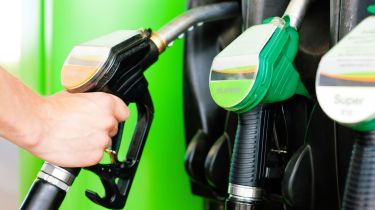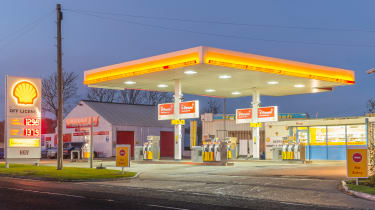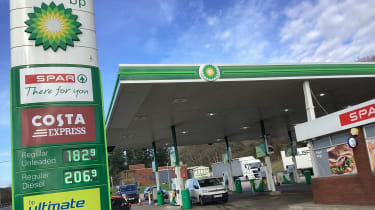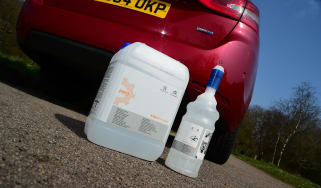Petrol and diesel prices: UK fuel costs explained
What makes up the cost of petrol and diesel in the UK, and how you can save money when filling up

The price of petrol and diesel in the UK is a national obsession, and surely only rivalled by the weather as a source of small talk for Brits. Yet while everyone has a sense of what’s cheap and what’s expensive when it comes to fuel, far fewer know the exact reasons for changes in price and how costs are calculated.
In this article, we’ll look at what determines petrol and diesel fuel prices in the UK, as well as explain why prices vary from place to place. We’ll also examine data from the RAC on current and historical fuel prices, and answer some of your frequently asked questions about fuel.
How are fuel prices determined?
As with all products, fuels have three main elements that decide the price: the costs incurred by companies involved, their profit margin and then the tax added by the government. Where fuels differ from most other things you buy is that the tax makes up a huge amount of the final price.
 Wrong fuel: What to do if you put petrol in your diesel car
Wrong fuel: What to do if you put petrol in your diesel car
In the UK, tax equates to about 65% of the price you pay at the fuel pumps. This comes via Value Added Tax (VAT), which is charged on most products, and fuel duty, which is fixed at 52.95 pence per litre of fuel. VAT is proportional to the amount you buy, at 20%.

The price of oil is reflected in the price of fuel, but there are loads of other factors that fuel companies also take into account, including the price to transport it, global exchange rates and how much profit they feel they can make. You’ll also have noticed that prices are different around the country, even between fuel stations of the same brand. But why is that?
Why is fuel so expensive in some places and cheaper in others?
A typical complaint you might hear from a British motorist is that fuel costs far too much at motorway service stations and is significantly cheaper at supermarket fuel stations. You might also notice that rural petrol stations far from the nearest motorway are pricey, yet those in big towns are more affordable, even if they’re not at a supermarket.
A big part of why fuel prices vary by location is that the transportation cost is higher for more remote areas. It’s easy to see how it’s more difficult to get a large truck full of fuel to a distant location than to a petrol station easily accessible from the motorway. The lorry will need more of its own fuel to get there, and there’s also the extra time taken which means increased drivers’ wages.
 What is super-unleaded fuel and should you use it in your car?
What is super-unleaded fuel and should you use it in your car?
That doesn’t explain why petrol and diesel are so expensive at motorway services, though, as these are arguably the easiest fuel stations to reach. Sellers say that high rent prices at service stations, 24-hour opening times and maintenance of extra facilities, such as toilets, contribute to the higher prices. However it’s also clear that supply and demand plays a huge role here, and buyers needing fuel on a long trip are more likely to stomach a one-off high fuel price than at their local fill-up spot closer to home.
Fuel prices have historically been lower at supermarket petrol stations, although this is changing and these days there’s not as much difference as there once was. Supermarkets tend to use fuel as a way to get customers into their stores to do the weekly grocery shopping – they accept a lower profit margin on fuel in a bid to sell more food.

Why is petrol typically cheaper than diesel?
There are lots of reasons why diesel costs more than petrol. Laws on the content of diesel fuel to make it safer and cleaner mean that even though it is less ‘refined’ than petrol – from the original crude oil – it still costs broadly the same (as petrol) to create the product.
Add in some other factors, including the fact that diesel costs a little more to transport because it’s heavier, and that more diesel has to be imported to the UK than petrol, and you can see why it costs more at the pumps. In the winter, some countries use diesel to heat their homes, so the cost of importing gets higher because demand for the fuel increases.
It’s worth remembering that if you are considering a diesel car but are put off by higher fuel prices, you need to do some further calculations – diesel cars are often much more economical than petrol ones, so you’ll spend less overall on fuel even if each fill-up costs more. However the cost of low-emissions zones, such as the ULEZ in London, can mean diesel isn’t as cost-effective as it once was.
We all like to save money on fuel, so check out our list of the cheapest cars to run and most economical cars
Recommended

What is AdBlue and what does it do? Diesel exhaust fluid explained
Most Popular
Tips & advice

Car dashboard warning lights: what does each symbol mean?

Electric car charging stations: public networks, charger types, apps and maps





